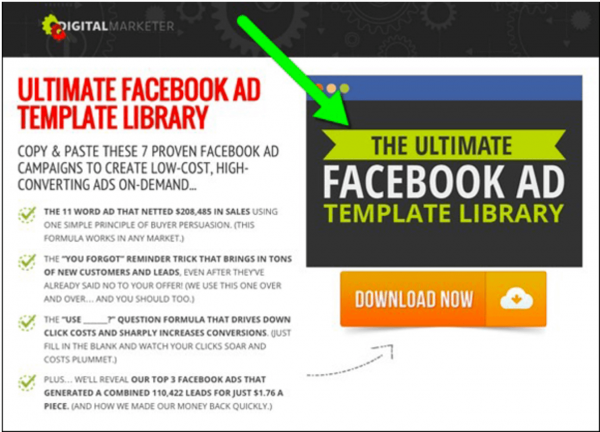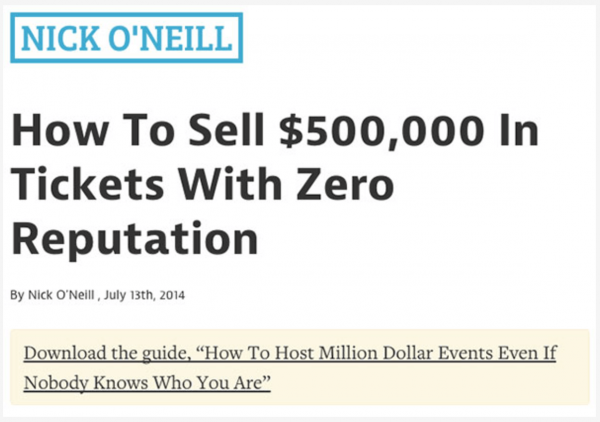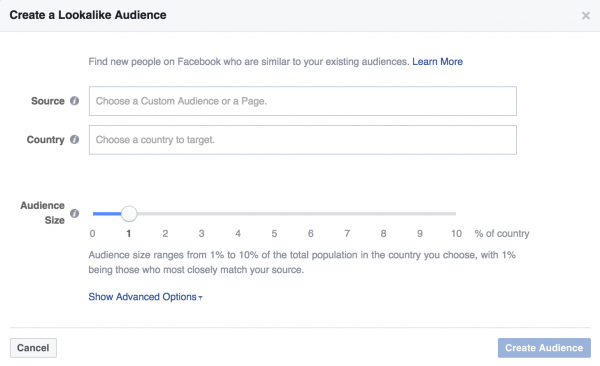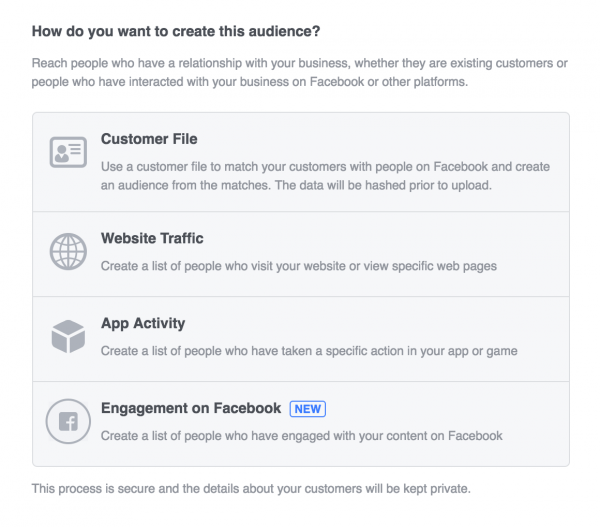How to Promote a Podcast: Our 5 Simple Tips
Podcasting has technically been around for as long as there has been radio.
With the creation of the show Serial and the emergence of a niche of podcasts meant solely for the entrepreneur (e.g., Startup, Entrepreneur on Fire, The Eventual Millionaire), both creators and audiences alike are seeing the benefits of starting and listening to podcasts.
Just look at the data:
The search topic “podcasts” has been steadily increasing for the past three years worldwide, and it’s bound to keep growing.
It has become a great method for bolstering marketing for businesses and, for some, has even become its own business model.
For the creators in particular, podcasting offers a whole new medium for connecting with their audiences on a deeper level. If consumers are listening to you for hours every month, they are building a relationship with you and your company. Often, it’s a level of trust that you won’t find through just publishing blogs. They will hear the person behind the business — it will humanize you.
With a rise in trust comes a rise in authority, and the chance to be an expert in your industry. With expert status comes the chance to expand your network and connect with other industry leaders who you may look to for advice.
Besides, podcasting is cheap, and (for now) a less competitive means of creation than blogging.
But once you start a podcast, how do you actually get people to listen? How do you break through the noise and begin connecting with an audience that you don’t have?
Here are our five simple tips for promoting your podcast:
1. Leverage your current digital assets
The absolute #1 place to start is with what you already have.
If you’ve built up a website or blog, chances are you probably have a mailing list. You can use the leads you already have on that mailing list to attract listeners to your podcast.
For beginners
Send out a special announcement email to your subscribers about the podcast. People who already love your written content will be more likely to become listeners — but they have to know you’re actually creating content for them to listen to.
Then, write a blog post about your podcast and link to where they can find it. Maybe explain why you’ve chosen to start a podcast and where you see it going (which you probably did in your first episode as well, so the work is 90% done!). How do you see it adding to your consumer’s experience?
Build hype for the podcast; get your audience as excited as you are about it.
Don’t forget to use social media to your advantage. If you have a Facebook fan page or a Twitter account, spread the news there as well. You can even promote or boost the post so that it reaches a broader audience.
For Empire Flippers, social media is a crucial part of our podcast promotion. We like to use Facebook and Twitter especially, and we create Facebook ads when we have a big-name guest who we really want to feature.
For established podcasters
For those who have already started their podcast and need a little boost, you should still be leveraging your digital assets, but in a different way.
Instead of announcing your podcast over and over in emails that will be sure to lose you subscribers, start including regular blurbs about the podcast in your newsletters, or maybe even a footer. You want to keep your podcast in the minds of your readers.
On your blog, you’ll want to talk about your podcast without overly mentioning it. If people come to your website for your blog, they aren’t going to want to hear about your podcast all the time.
Instead, find appropriate places to place inbound links. Are you writing about due diligence? Did you have a podcast all about due diligence? Link to it! If your reader is interested in learning more, they’ll click through.
We had a podcast episode where we invited a CPA on to talk about the financial responsibilities of being an entrepreneur. Later on, we wrote a blog post about accounting, and got our information directly from what we learned. We linked to the podcast and recommended our readers go listen to it if they wanted a more in-depth look at the numbers game.
This was a way to drive traffic to our podcast without putting up neon signs saying “Please Go Listen!”
If your podcast is established, consider creating Facebook and Twitter accounts specifically for the podcast. However, if you’d rather keep your podcast directly connected to your website and brand, this may not be necessary. Keep posting about new episodes when they come and buying ads for your big wins.
2. Use Lead Magnets to your advantage
Another great way to increase your audience is through lead magnets, a way to maximize leads by offering something of value in return for information. Some popular lead magnets include checklists, e-books, video tutorials, online courses, and even swag from the company.
You can create lead magnets especially to collect information for podcast promotion purposes, even going so far as offering your podcast as the reward.
For beginners
On your website, create whichever kind of lead magnet is right for you. Whether it’s on a footer at the end of a blog post, a popup, a blurb on your sidebar, or a landing page, your magnet should clearly state what you want from your potential lead (likely an email address, to send them new episodes!) and what you will provide for their information.
Because your podcast is just starting out, it might not hold the same value as, say, a case study or a free tool. So you may want to offer something else in order to get the information you need to build your podcast’s audience.
Here’s a great example of a lead magnet from DigitalMarketer that got over 35,000 leads in 60 days:
When you click “Download Now,” it brings you to a page that collects your information. They can then use that information to promote a podcast, a blog article, or a product they want you to buy. It will create an asset that you can then leverage to the benefit of your podcast.
For established podcasters
If you have several episodes of your podcast already out there, you may be able to offer special episodes not available to the public, or a curated collection of your “best” podcasts. You don’t just want to just offer episodes that are already available on iTunes, as it wouldn’t be worth customers giving up their info for. Creating something special for your potential leads will help you get more information from them.
Here’s an example of a lead magnet that offered subscribers a written guide to the podcast:
If you are working on a budget and are audio-engineering the podcasts yourself, you can easily create notes to go along with the podcast and then offer them as lead magnets. If you have an employee creating the podcasts for you, you can add that to their job description.
While we don’t have lead magnets specifically for our podcast, we have used the information gathered to promote our podcast to our subscribers and increase our listeners.
3. Create a Lookalike Audience
Facebook can be frustrating and magical in equal amounts. In this case, it’s a magical place where you can grow your audience based on the audience you already have, by using something called a Lookalike Audience. All you have to do is fill out some basic information, and you’ll get more potential listeners.
For beginners
To create a Lookalike audience on Facebook, you must first have a business page and be an admin of that page. You don’t need a pre-established audience, but it is an option when selecting your preferences. You will also want to have access to the ad manager.
When you create your audience, all you have to do is locate the “Audiences” tab in your ad manager, click “Create a Lookalike Audience,” and fill out the form that looks like this:
Play around with it, but know that you do have to pay for it, as the only way your Lookalike audience will become your actual audience is through a paid Facebook ad.
For established podcasters
The protocol is pretty much the same for beginners as it is for established podcasters, only you can use the “custom audience” feature to better target potential listeners.
Because you most likely have a pre-established audience, you can use their data to find leads with the same interests and habits as them. To do this, they’ll need your preferred source of data, and access to that source.
If you choose website traffic, they will need that information via code. If you choose an email list custom audience, they’ll need that info as well. Don’t worry! They’ll walk you through it as you fill out the form.
Custom audiences will give you a better chance of converting leads and targeting a more specific audience. This option will also require you to pay for an ad, so use it wisely.
While there isn’t a lot of data on the tool’s effectiveness, it looks promising. You’ll just have to try it for yourself!
4. Be a Guest
Being a guest on another podcaster’s show is a good way to get the word out about your own podcast via shameless self-promotion.
Traffic from that podcast will naturally flow to your website, and you’re more likely to pick up a new listener from those who are already interested in listening podcasts over those you have to convert from reading written blogs.
In addition, while sharing your knowledge and input on someone else’s podcast, you are networking with another entrepreneur, getting a free plug for your business, and building trust with their audience.
For beginners
If you are new to entrepreneurship, and new to podcasting, this might be hard. If nobody knows who you are, they might not want to feature your name on their podcast. What would be in it for them? If you have influential friends, they may do you a favor, but don’t count on it.
If you need to build a name for yourself, you can start out guest posting for authoritative websites. You can use those guest posts to promote your podcast, and maybe build up a big enough audience to warrant being a guest on someone else’s show.
Getting your name out there will also help you get to know people and build potentially beneficial relationships. Then, when you pitch your ideas to them, they’ll be more likely to help you out.
Pitching is your friend. Learn how to do it, and learn how to do it well.
For established podcasters
Getting on other podcasts will be easier the more exposure you’ve had and the bigger your audience — as you’ll be bringing an audience with you. However, you’ll still have to pitch your ideas and sell yourself as a good guest, offering more than just promotion.
When we pitch other podcasts, we include potential topic ideas, why their audience would like it, and the promotion that we can bring to their podcast. You must offer something in return; you must offer quality content.
Another benefit of having an established show is the ability to offer a guest spot on your podcast in return. Doing a double show, possibly about similar topics or even as a continuation of the first show, will double your audience and doubly promote both podcasts. That is the ideal situation.
5. Invite Guests
Inviting people to appear on your show is our final tip for podcast promotion. When you bring guests onto your show, you increase your authority, expertise, and promotional opportunities. If the guest has an audience, that audience will want to listen to your podcast and will get hooked on your content (hopefully).
For beginners
Getting guests on your podcast is much easier than being a guest on someone else’s podcast. Why? One reason: flattery.
You can charm your prospects with kind words, even playing up the charity they would be performing by appearing on your podcast as you are starting out. This may hurt your ego, but the gains you’ll see will make up for it.
Guests will promote the episode to their audience, bring you new listeners, and may even take it a step further by inviting you onto their podcast if they have one. Double exposure, as I mentioned above, is ideal.
As with getting guests onto your podcast, when you’re a beginner, you’ll have to pitch your idea to the potential guest. Tell them your topic idea, how they can add to the conversation, the benefits of being on your show, and how you will promote the episode.
This is a great networking opportunity as well, so don’t jump the gun. Sweet talk them a little, develop a relationship. If you have a good rapport, they’ll see it as helping out a friend, instead of some random person.
For established podcasters
Flattery will get you a long way, even when you’re a more established podcaster. Only now, you have an audience to offer them.
The difference between beginners and established podcasters is that you won’t need to pitch potential guests your ideas as often. We still pitch to our potential guests, but if you’re big enough you may even have them pitch to you.
When we reach out to potential guests, we like to refer to it as “content collaboration,” because ultimately it is. Justin, our founder and chief podcaster, approves the guests before we pitch to them, to make sure we always have guests who will add value to our podcasts. Then, we offer suggestions for topics they may be interested in, and offer the benefits of being on our show.
Some Parting Words
There are countless options for podcast promotion, so choose which one(s) might be right for you and roll with it. Leverage your assets, use lead magnets, create new audiences for advertising, and collaborate with guest podcasters.
Any of these should help to increase your audience if you are creating unique, quality content.
But remember, a podcast is like a business. It takes time to create, edit, promote, and your audience operates similarly. Your listeners are your consumers, so you need to make sure they have something to consume.
If over 160 episodes have taught us anything, it’s that consistency is incredibly important.
If you decide to publish a new podcast every week, commit to that. Publish a podcast every week. If you stop publishing for a long period of time or take breaks, you’ll lose any momentum you have been building as a result of your promotional efforts.
Go on and create! Your listeners are waiting.
Photo credit: silent47








